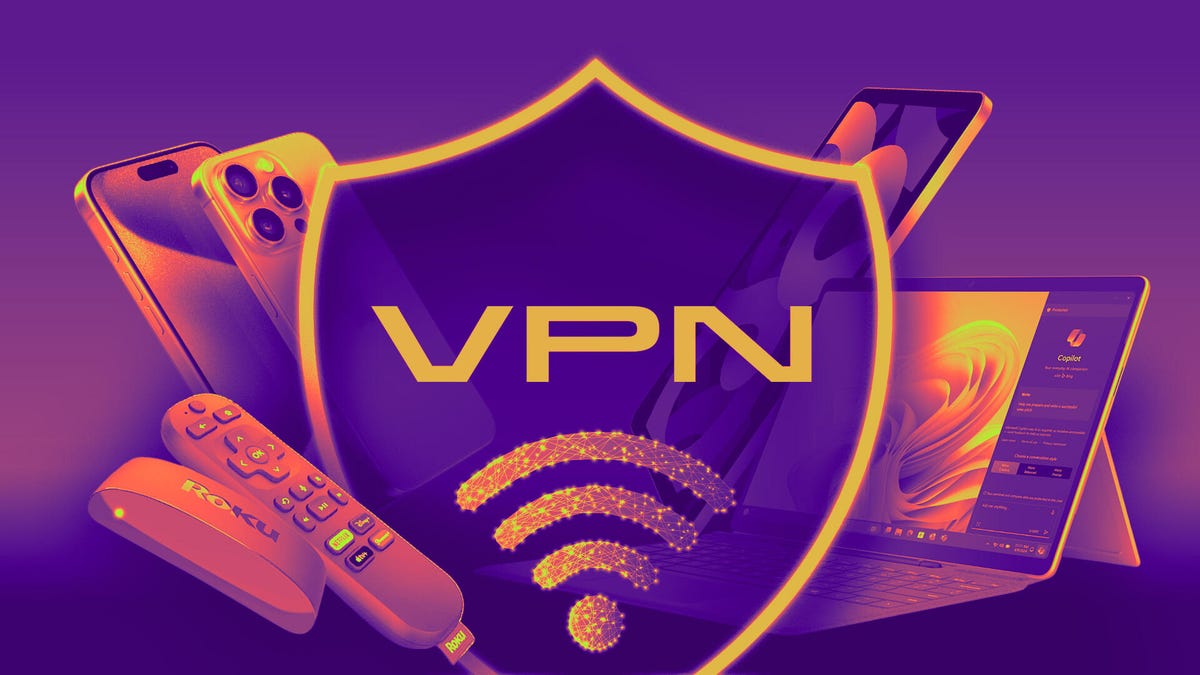
Based on our years of experience using, testing and researching VPNs, these are the most pertinent factors to consider when choosing a VPN for multiple devices:
Number of simultaneous connections allowed
If you have a lot of devices that you want to protect with a VPN, you’ll want a VPN that allows for enough simultaneous connections to cover all of your devices. Most VPNs offer at least five simultaneous connections, but some offer up to an unlimited number. Before purchasing a subscription, check with the VPN provider to see if it offers enough simultaneous connections for all of the devices on which you want to use the VPN. Normally, you can install a VPN on as many devices as you please, but you’re limited in how many active VPN sessions you can have. For instance, you can install a VPN on 20-plus devices, but if there’s a 10 simultaneous device limit, you can only have a VPN running actively on 10 of those gadgets at a time.
Platform compatibility
Your VPN should be compatible with all of the devices you want to use it on. Many VPNs have apps that are compatible with the most popular platforms like Windows, Mac, iOS and Android. In addition to traditional x86 Windows apps, many VPN providers now offer Windows for ARM apps so you can run a virtual private network on the Microsoft Surface Pro and other ARM-based devices. For streaming, look for Android TV, Amazon Fire TV and Apple TV support. Linux users may have issues finding a VPN that offers a useful, native app for Linux. Even if the VPN has a native GUI for Linux, it may not offer the full functionality that its MacOS and Windows counterparts. If you want to protect all of your connected devices, independent of their individual compatibility with the VPN, you can connect using a VPN-compatible router. It’s a more cost-intensive and technically demanding way to go, but it effectively eliminates compatibility issues.
Privacy
Privacy is one of the most important considerations for any VPN, regardless of what you need one for. Make sure the VPN you’re using for all of your devices offers basic privacy protections like AES 256-bit and ChaCha20 encryption, a kill switch, DNS leak protection and a no-logs policy. Check the provider’s privacy policy and look for trust signals like transparency reports and external audits.
Speed
Whether you’re streaming, gaming or simply browsing the internet, you’ll want a VPN that can deliver fast connection speeds. A VPN will naturally slow down your connection speeds, often by 50% or more. With a fast VPN, your speeds shouldn’t decrease by more than 20% and the speed drop shouldn’t be noticeable for most online activities.
Network
The breadth of a VPN’s network of servers is an important consideration for various reasons. For one, if you’re traveling, there’s a better chance that you’ll have a server located close by, meaning that your VPN connection should be faster and more stable wherever you are. Additionally, more server locations mean access to a potentially wider selection of geographically restricted content from other regions. Before purchasing a subscription, check the VPN’s server page to ensure its network covers the locations that you need. Most of our top-rated VPNs have thousands of servers in 100-plus countries.
Streaming support
While many folks rely on VPNs for privacy, virtual private networks can be great for entertainment, like gaming or streaming videos. Because VPNs can make it look like you’re in a different geographical area, like another city, state or country, you can bypass regional blocks to access geo-restricted content. A VPN can unlock foreign Netflix, Disney Plus or Amazon Prime Video libraries. You can also access streaming services from your home country, like BBC iPlayer, CBC, Hulu, Peacock, Paramount Plus, Max and other sites, while traveling abroad. A VPN may let you get better streaming video quality on mobile devices or even save money on streaming service subscriptions.
Price
Paying more for a VPN doesn’t necessarily translate into greater platform compatibility or a more generous simultaneous connection count. Some of the more budget-friendly VPNs allow for far more simultaneous connections than many of the more expensive options. Depending on the VPN you choose, you could pay from about $40 to $100 per year, so there are options for every budget.
Support
Most VPNs are generally pretty simple to set up and use on most compatible devices. As with any product or service you purchase, it’s good to have competent support staff on hand to answer questions and easy-to-follow setup and troubleshooting guides to reference for help with any issues you may run into. The top VPNs in the market today typically offer live chat customer support and have extensive knowledge bases filled with guides for setting up and using their services on all sorts of platforms.


